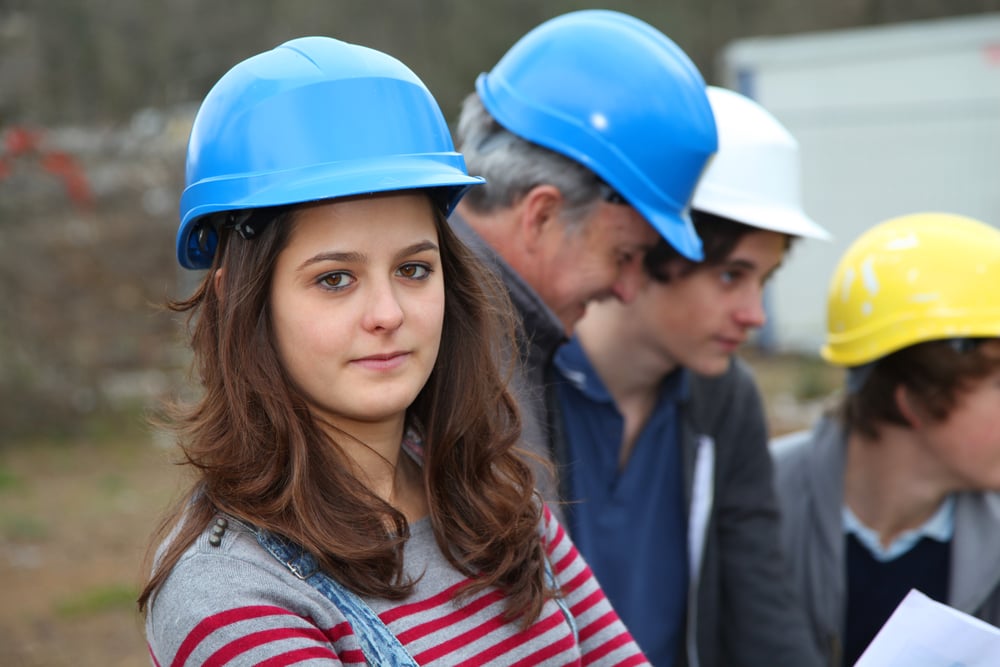
Project-Based
Learning
The program is structured in three phases: Foundation, Exploration, and Mastery, spanning middle school (Grades 6–8) to high school (Grades 9–12). Each phase deepens students' competencies, builds on prior knowledge, and emphasizes practical, real-world applications.
Core Goals
- Foster critical thinking, creativity, and collaboration through project-based learning.
- Develop mastery in Design Thinking, Prototyping and Iterative Design, and Project Management.
- Enable students to work on projects that align with their passions and have real-world relevance.
Phase 1: Foundation (Middle School Grades 6–8)
Year 1: Introduction to Design Thinking
- Focus: Understanding and practicing the Design Thinking Process.
- Key Activities:
- Introductory workshops on empathy, user needs, and brainstorming.
- Mini-projects: Create simple solutions for school-based challenges (e.g., improving daily activities).
- Collaborative team projects with peer feedback sessions.
Year 2: Prototyping Basics
- Focus: Building prototypes using physical materials and digital tools.
- Key Activities:
- Hands-on workshops on using tools (3D modeling software, craft materials, coding platforms).
- Small group projects: Design and prototype a functional gadget or app.
- Introduction to gathering and applying user feedback.
Year 3: Introduction to Project Management
- Focus: Breaking tasks into steps, setting timelines, and tracking progress.
- Key Activities:
- Guided projects: Students manage tasks for a collaborative class project.
- Time management workshops using digital tools (e.g., Trello, Notion).
Phase 2: Exploration (High School Grades 9–10)
Year 4: Real-World Problem Solving
- Focus: Applying Design Thinking to larger, real-world problems.
- Key Activities:
- Partner with local organizations or communities to identify real-world challenges.
- Independent or group projects: Create a solution, prototype it, and test with real users.
- Focus on iterative feedback and improvement cycles.
Year 5: Advanced Prototyping
- Focus: Refining skills in prototyping and iterative design.
- Key Activities:
- Use advanced digital tools (e.g., CAD software, Figma/App Development, AR/VR platforms).
- Build high-fidelity prototypes and conduct usability testing.
- Projects include presenting solutions to industry professionals for feedback.
Phase 3: Mastery (High School Grades 11–12)
Year 6: Independent Passion Projects
- Focus: Independent project management and skill application.
- Key Activities:
- Students define their project scope based on personal interests.
- Create detailed project plans with milestones, deadlines, and metrics for success.
- Work independently while receiving guidance from mentors and peers.
- Sharing and exhibiting projects
Year 7: Capstone Projects
- Focus: Leadership and presenting real-world solutions.
- Key Activities:
- Capstone projects addressing global or societal challenges (e.g., sustainability, accessibility).
- Final presentation to a panel of educators, professionals, and community members.
Key Components Across All Phases
Scaffolding Skills Development
- Build progressively, with each phase incorporating deeper learning of Design Thinking, Prototyping, and Project Management.
Personalized Learning
- Encourage students to choose projects based on their interests and passions, with mentorship to align these with real-world applications.
Integration of Technology
- Use tools like Miro, Figma, Tinkercad, and project management platforms to support learning and collaboration.
Real-World Connections
- Partner with local businesses, nonprofits, and industry experts to ensure projects have real-world impact.
Feedback Loops
Regular peer reviews, mentor check-ins, and user testing sessions to ensure continuous improvement and learning.
Assessment and Reflection
- Skill Competency Tracking: Rubrics for evaluating progress in Design Thinking, Prototyping, and Project Management.
- Portfolio Development: Students build a digital portfolio documenting their projects, processes, and outcomes.
- Reflective Practices: Encourage journaling or video reflections on challenges, successes, and learning outcomes.
This program provides a comprehensive, engaging, and impactful learning journey that prepares students for future careers while fostering creativity, collaboration, and independence.
